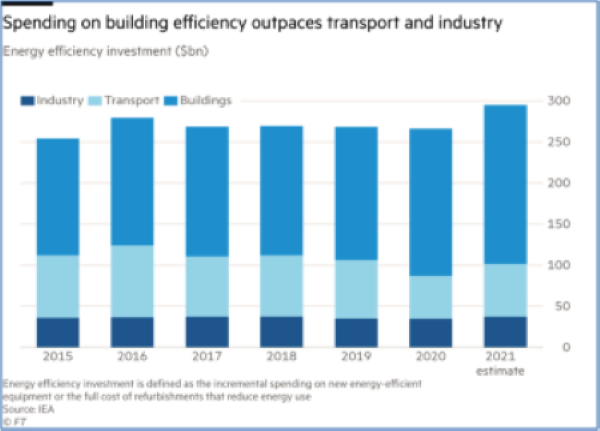The Short Report - October 4, 2023
GOVERNMENT FUNDING
The Government of Canada invested $1.34 billion and the Government of Quebec $1.37 billion in an electric vehicle battery manufacturing plant to be built near Montreal by Swedish battery startup Northvolt. The first phase of the facility will cost $7 billion and employ up to 3,000 people. The two governments will provide additional production incentives of up to $4.6 billion, including one-third of that Quebec. The plant will make enough lithium-ion batteries for 1 million electric cars a year, Northvolt said. Construction is expected to begin by the end of this year, with the first batteries delivered to North American automakers in 2026. Northvolt
The Government of Canada is providing $23.4 million, through Natural Resources Canada’s (NRCan) Smart Renewables and Electrification Pathways Program, for EDF Renewables Canada’s Cypress 2 Wind Project, a 47-megawatt wind power facility in Cypress County in southeast Alberta. The project, completed last month, is expected to reduce GHG emissions by 67 tonnes per year, equivalent to removing over 20,000 cars off the road each year. The facility will produce enough zero-emission electricity to power the equivalent of nearly 15,000 average homes in Alberta. The project is partly owned by the Kainai/Blood Tribe and located on its traditional territory. NRCan’s recent clean energy investments in Alberta total more than $344 million. NRCan
Canada's Ocean Supercluster (OSC) announced nine new artificial intelligence ocean projects with a combined value of $20 million. The projects are led from five different provinces (Newfoundland, Nova Scotia, Quebec, Ontario and British Columbia). The projects encompass:
- on-board vessel electronic monitoring of fisheries
- AI monitoring to maximize oyster production
- developing an AI-sensor to monitor seaweed growth
- measuring biodiversity by utilizing environmental DNA
- creating a complete autonomous system for the aquaculture industry, using autonomous underwater vehicles and autonomous surface vessels
- robotic, autonomous observation of aquaculture pens
- expanding hydropower while safeguarding habitats using AI-powered fish monitoring
- modernizing fisheries monitoring with AI to make electronic monitoring more affordable and effective
- characterizing seafloor sediment samples;.
Among the nine projects is the Fishvue AI Platform Project, led by Archipelago Marine Research in Victoria, B.C. The project is a collaboration with various partners, including Archipelago Marine Research, a pioneer in electronic monitoring (EM) technology, Barnacle Systems Inc., the Canadian Groundfish Research and Conservation Society, and the University of Victoria. OSC is contributing $148,500 from the Pan-Canadian Artificial Intelligence Strategy Program to the $581,500- project, with the remaining funding coming from project partners. The project, utilizing EM on vessels, aims to enhance efficiency and reduce costs for fisheries regulators and industry stakeholders by incorporating AI tools to expedite data review while maintaining data quality. The project is expected to encourage broader adoption of EM in Canada and worldwide, leading to more effective fisheries management, sustainable harvesting practices, optimized quotas and improved resource allocation. OSC
Innovate BC, through its Ignite technology adoption program, awarded more than $1.36 million to five B.C. research and development projects. The funding will accelerate commercialization of clean technology, advanced materials and manufacturing, and life science projects, Innovate BC said. Projects include development of: long-lasting coatings and adhesives in the marine industry; human-like cancer tissue models; aluminum smelting pot sensors; smart “microcarriers” for high-density culture of therapeutic cells; and corrosion- and wear-resistant materials for 3D printing. Innovate BC
The Government of Newfoundland and Labrador is investing nearly $346,000 in agriculture infrastructure projects for fruit and vegetable producers under the 2023-2024 Provincial Agrifoods Assistance Program, part of the Sustainable Canadian Agricultural Partnership. This program includes support for greenhouse operations, equipment to enhance vegetable production, improve soil health and adapt to climate change. The funding includes $127,000 for eight new entrants to the agriculture sector. The investment aims to increase food self-sufficiency, agricultural growth and secondary processing in the region, contributing to residents' well-being by ensuring access to good food. Govt. of Newfoundland and Labrador
The Town of Amherst, Nova Scotia, will receive $349,300 in funding from the Sustainable Communities Challenge Fund to upgrade its infrastructure to combat climate-related flooding. The project will involve a stormwater management study and improvements to storm water infrastructure, to help reduce the risk of flooding in the area around Dickey Brook. The Sustainable Communities Challenge Fund supports municipalities, non-profit organizations and communities in preparing for climate change and reducing greenhouse gas emissions. Govt. of Nova Scotia
RESEARCH, TECH NEWS & COLLABORATIONS
Eight Canadian universities are among the top 200 in Times Higher Education’s (THE) World University Rankings 2024, which includes nearly 2,000 universities from more than 100 countries. They include: the University of Toronto (#21), University of British Columbia (#41), McGill University (#49), McMaster University (tied for #103), University of Alberta (tied for #109), Université de Montréal (tied for #111), University of Waterloo (tied for #158), and the University of Ottawa (tied for #177). The ranking uses a slightly different method this year and measures an institution’s performance across five areas: teaching, research environment, research quality, industry and international outlook. Several countries shifted in terms of average ranking, with Canada’s average ranking improving from 349 to 337. THE
Global mining firm BHP, whose Canadian operational headquarters are in Saskatoon, announced a $2.6-million, three-year partnership with Indspire, an Indigenous national charity that invests in the education of First Nations, Inuit and Métis people. The partnership will fund the expansion of Indspire’s Building Brighter Futures: Bursaries, Scholarships and Awards program and support multi-year travel grants for the Soaring, Indigenous Youth Empowerment Gathering and the National Gathering for Indigenous Education events. BHP
The Southern Alberta Institute of Technology (SAIT) renamed its Indigenous resource centre “Natoysopoyiis” (nah-toy so-poh-yees), meaning holy wind lodge in the language of the Blackfoot people. The lodge provides a safe space for Indigenous students to tend to their mental, emotional and spiritual health. At the renaming ceremony, SAIT also introduced its new Indigenous Knowledge Keeper, Thomas Snow, who will share teachings and foster connection between SAIT’s campus community and Indigenous culture. Snow is a member of the Stoney Nakoda Nation west of Calgary. SAIT
Global video game maker Ubisoft, along with Mila - Quebec Artificial Intelligence Institute and McGill University, partnered to create a new research chair focused on responsible artificial intelligence in game development. The five-year Chair, Scaling Game Worlds with Responsible AI, will explore the ethical use of AI in large-scale game development content creation. A research team, comprised of academic trainees and industrial production and research experts from Ubisoft, will work together in a distinctive collaborative environment to build and deploy applied research prototypes. The Chair will be led by Dr. Derek Nowrouzezahrai, associate professor of electrical and computer engineering at McGill. Ubisoft
Insight Medbotics, a Hamilton-based medical device company, received clearance from the U.S. Food and Drug Administration for the company’s MRI-compatible robot. Called the Image-Guided Autonomous Robot (IGAR), it lets doctors perform surgery while a patient is inside an MRI scanner, allowing for more complex and difficult surgeries with greater reliability. The robot’s technology originated with Canadarm and Dextre space robotics technology, developed by Ontario-headquartered MacDonald, Dettwiler and Associates Ltd. (MDA) for the Canadian Space Agency, for use aboard the International Space Station. The MRI-compatible robot was developed by the Centre for Surgical Invention & Innovation in Hamilton, in collaboration with MDA. SpaceQ
Researchers at the University of Waterloo's Waterloo Institute for Sustainable Aeronautics (WISA), in collaboration with the Waterloo Wellington Flight Centre (WWFC) achieved a milestone with their two-seater Pipistrel Velis Electro electric plane making its inaugural flight. The Velis Electro, already certified in Europe, aims to become Canada's first type-certified electric plane. WISA and WWFC teams are conducting tests in demanding Canadian conditions, demonstrating the viability of electric flight in the country. Electric planes like the Velis Electro could help address a pilot shortage in Canada, making flight training more economical and environmentally sustainable. The project's next goal is approval for commercial use, potentially transforming flight training in Canada and reducing aviation emissions. WISA received a nearly $9.2-million investment from the Federal Economic Agency for Southern Ontario. U of Waterloo
The federally supported Computers for Schools Plus (CFS+) program celebrated its 30th anniversary of fostering digital inclusion in Canada. This initiative refurbishes computer equipment and provides it to communities nationwide, simultaneously offering young Canadians essential work experience to equip them with digital skills for the modern economy. Since its inception in 1993, CFS+ has significantly reduced electronic waste by extending the life of electronic devices and has bridged the digital divide by distributing two million computers and digital devices to schools, libraries, non-profit organizations, Indigenous communities and eligible low-income individuals. Through its internship program, CFS+ has also provided more than 8,500 young Canadians paid work experience in computer refurbishment centres. Govt. of Canada
VC & PRIVATE INVESTMENT
Toronto-based Brookfield Asset Management will invest up to US$845 million in a joint venture with renewable energy developer Axis Energy Ventures, a flagship of North Caroline-based Axis Energy. The venture aims to develop Axis Energy’s wind and solar power projects in India. Axis Energy and Brookfield, which have been in a partnership since 2019, developed more than 1.8 gigawatts of solar and wind assets in a previous venture. The Indian government is targeting 500 gigawatts of renewable energy by 2030. Reuters
California-based medical firm Adela closed $48 million in financing to advance technology developed in Toronto. The company is developing genomics-based technology that will detect cancer from just a single blood sample, enabling early treatment of the disease. The funding round included existing investors F-Prime Capital, OrbiMed, Deerfield Management, Decheng Capital, and RDA Capital Management, as well as new investor Labcorp. It brings the total capital raised by Adela to date to $108 million. Adela’s tech platform was originally developed by Adela’s chief scientific officer, Dr. Daniel De Carvalho, PhD, at University Health Network’s Princess Margaret Cancer Centre in Toronto, in collaboration with scientists at Sinai Health System. Adela
Toronto-based learning and development software maker Cognota raised US$5.5 million in a Series A funding round led by Grotech Ventures and supported by MassMutal Ventures. The funding will be used to growth Cognota’s operations software business for corporate and learning development teams. The company aimes to streamline and improve the efficiency of companies’ learning and development processes, from training intake to project and capacity planning, and content design. CISION
Pollin Fertility is set to open its first clinic in downtown Toronto this month, after closing a $20-million Series A funding round led by Osmington Inc., a real estate-focused private investment firm owned by David Thomson. Pollin Fertility has developed a custom electronic medical record system tailored for fertility treatment, streamlining communication between the clinic, care team and embryology lab. The company aims to use data collected by its software to apply AI and machine learning to improve outcomes and success rates. This funding will support the expansion of Pollin's technology, flagship clinic and the establishment of satellite clinics in other provinces. Betakit.
REPORTS & POLICY
François-Philippe Champagne, Minister of Innovation, Science and Industry, announced Canada’s Voluntary Code of Conduct on the Responsible Development and Management of Advanced Generative AI Systems, effective effective immediately. The code identifies measures that organizations are encouraged to apply to their operations when they are developing and managing general-purpose generative artificial intelligence (AI) systems. The code outlines measures that are aligned with six core principles:
- Accountability: Organizations will implement a clear risk management framework proportionate to the scale and impact of their activities.
- Safety: Organizations will perform impact assessments and take steps to mitigate risks to safety, including addressing malicious or inappropriate uses.
- Fairness and equity: Organizations will assess and test systems for biases throughout the lifecycle.
- Transparency: Organizations will publish information on systems and ensure that AI systems and AI-generated content can be identified.
- Human oversight and monitoring: Organizations will ensure that systems are monitored and that incidents are reported and acted on.
- Validity and robustness: Organizations will conduct testing to ensure that systems operate effectively and are appropriately secured against attacks.
The voluntary code received support from the Council of Canadian Innovators and by AI developers such as Cohere and OpenText. ISED
Jonathan Wilkinson, Minister of Energy and Natural Resources, released Canada’s Carbon Management Strategy at the International Energy Agency in Paris, France. The strategy describes the role of carbon management in Canada’s path to a net-zero economy and federal actions to support development and deployment of carbon management technologies. The Strategy outlines five key priority areas for the federal government to promote a competitive and robust carbon management industry:
- accelerating innovation and research, development and demonstration
- advancing predictable policies and regulations, including Canada’s economy-wide carbon pricing system
- attracting investment and trade opportunities
- scaling up projects and infrastructure to meet the evolving capacity needs of the carbon management sector
- building partnerships and growing inclusive workforces.
The Strategy also identifies five pathways where carbon management is expected to play a critical role in many sectors to help achieve Canada’s 2030 climate targets and a net-zero economy by 2050. These pathways are: decarbonizing heavy industry; low-carbon hydrogen production; low-carbon dispatchable Power; carbon dioxide-based industries; and carbon removal. Canada has built five of the world’s first large-scale carbon management projects. Around the world, there are an estimated 570 carbon management projects in operation or development. NRCan
Innovation, Science and Economic Development released a report on its policy consultation on Canada’s competition law, part of the federal government’s comprehensive review of competition law and enforcement in the country. ISED said it heard, in responses from more than 130 identified stakeholders and more than 400 members of the general public, that affordability, consumer protection and levels of concentration in certain sectors of the economy were top of mind, as were issues related to maintaining a framework conducive to investments and environmental sustainability. The submissions raised more than 100 potential proposals to reform Canada’s competition law. The government now intends to develop proposals for consideration by Parliament. ISED
Canadian businesses performing R&D in 2021 generated more revenue for the use of their intellectual property than ever before, with receipts increasing 36.6 per cent to $8.9 billion, according to a report by Statistics Canada. At the same time, payments for IP increased 34.3 per cent to $2.2 billion. Since 2017, IP receipts have more than doubled, with the strongest growth occurring during the 2020-2021 COVID-19 pandemic period. The increase in IP receipts in 2021 was driven mainly by software sales and leases. StatsCan
Canada’s Pan-Canadian AI Strategy is creating significant social benefits for the country, with Canada’s artificial intelligence sector outperforming that of many G7 peers, says a report by Deloitte Canada’s AI Institute. According to the report:
- Canada ranked first in the five-year average year-over-year growth rate in AI talent concentration compared to G7 nations.
- The number of AI patents filed nationally across Canada rose by 27 per cent in 2021-2022 with 158 patents, and 57 per cent in 2022-2023 with 248 patents. This rate of increase puts Canada second among G7 nations in 2022-2023.
- Canada ranks third among G7 countries in terms of its level of per capita VC investment in AI enablers, developers, and users, trailing only the U.S. and U.K.
- Canada leads the world in terms of bringing more women into AI roles, achieving the highest year-over-year percentage change in female AI talent globally since 2019, including 67 per cent in 2022 alone.
- Canadian AI researchers produced more AI publications per capita in 2022 than any other G7 nation.
However, only 26 per cent of surveyed Canadian organizations have launched one or more AI implementations, compared with 34 per cent globally. Forty-two percent had exploratory AI pilots in place, on par with their global counterparts. Only 36 per cent of surveyed organizations globally felt their data-management and data-governance process maturity was in the mid-to-high range. Deloitte Canada
U.S. firms spent almost 103 times more than Canadian firms on R&D in 2021 – $529 billion compared with $5.2 billion in Canada – despite U.S. GDP being just 11.7 times greater than Canada’s, according to a report by the Information Technology and Innovation Foundation (ITIF), a Washington, D.C.-based think tank. Canadian-headquartered firms’ overall R&D spending in advanced sectors declined from 68 per cent below the size-adjusted global average to 78 per cent below. In comparison, U.S.-headquartered firms’ R&D spending in advanced sectors rose from 80 per cent above the sized-adjusted global average in 2013 to nearly 100 per cent above average in 2021, largely driven by spending growth in biopharma and software and IT services. The report's co-authors said the Canadian government should consider reforming and expanding its Scientific Research & Experimental Development tax incentive. ITIF
Switzerland, Sweden, the U.S., the U.K. and Singapore are the world’s most innovative economies in 2023, according to the World Intellectual Property Organization’s (WIPO) Global Innovation Index. Canada ranks No. 15, behind Israel and ahead of Estonia. The index identifies an increasingly uncertain outlook for venture capital, with the global value of VC funding declining by close to 40 per cent last year. Spending by corporations representing the largest investors in R&D reached an historic high of US$ 1.1 trillion in 2022. Corporate R&D spending increased by about 7.4 percent, down from 15 per-cent-growth in 2021. The WIOP 2023 index uses 80 indicators to track global innovation trends in 130-plus economies. WIPO
A dozen nuclear experts are calling on Canada to do a formal risk assessment of emerging nuclear technologies. They warned in an open letter sent to Prime Minister Justin Trudeau’s office that if a company planning to build a small modular reactor (SMR) in New Brunswick were successful, its product could be used by other countries to build nuclear bombs. The SMR, proposed by Saint John-based startup Moltex Energy, would recycle spent nuclear waste stored from CANDU reactors to produce more nuclear energy. Moltex has received $50.5 million in federal funding and $10 million from the New Brunswick government. The letter, signed by experts including: former U.S. Nuclear Regulatory commissioners Peter Bradford and Allison Macfarlane (who’s now at the University of British Columbia); Edwin Lyman, director of nuclear power safety with the Union of Concerned Scientists; and Sharon Squassoni, George Washington University research professor and former State Department and Arms Control and Disarmament Agency official, says the risk is that the plutonium in the used nuclear fuel could be separated and used to make weapons. Open Letter
Read more: Debate intensifies over using reprocessed spent nuclear fuel in small modular reactors
Taking a closer look at the benefits and risks of small modular reactors
THE GRAPEVINE
Rachael Maxwell has joined the University of Ottawa’s Office of the Vice-President Research and Innovation, as lead executive advisor, innovation, partnerships and entrepreneurship. Maxwell is well-known in the research funding and policy circles in Ottawa, with progressive leadership roles at Mitacs, Genome Canada and Evidence for Democracy (E4D). Most recently, she was the executive director of E4D. At Mitacs, she created and delivered the Canadian Science Policy Fellowship. She holds a Masters of Arts (University College Dublin) and a Bachelor of Arts (University of Alberta). uOttawa
Dr. Bo Wang, PhD, CIFAR AI Chair at the Vector Institute, was appointed Canada’s first hospital chief artificial intelligence scientist, at Toronto-based UHN, the country’s largest research hospital. Wang and Dr. Shaf Keshavjee, chief of clinical innovation at UHN, will co-lead a new research hub, the UHN AI Hub, that brings together scientists and clinicians from across UHN working in AI, including those in cancer, cardiovascular disease, neuroscience, transplantation and rehabilitation The aim is to use AI to more accurately and quickly diagnose, treat and monitor patients. UHN
John Dickerman is joining the Business Council of Canada (BCC) as its first U.S.-based policy advisor. As the BCC’s vice-president, United States, he will represent the BCC in Washington, D.C., with a focus on trade and investment, economic security and other cross-border priorities. Prior to joining the BCC, Dickerman was the North American head of the Confederation of British Industry, the largest trade association representing British business interests. He also previously worked in the Washington and New York offices of global law firms specializing in antitrust investigations and IP property litigation. BCC
Former University of Sherbrooke professor Dr. Robert Day was arrested by the Quebec government’s Permanent Anti-Corruption Unit (UPAC) for allegedly embezzling more than $100,000 in cancer research funds. Day is accused of fraud and the fabrication and use of false documents. According to a statement from UPAC, Day, a former professor in USherbrooke’s Faculty of Medicine and Health Sciences, misappropriated funds from the university, its foundation, and the Canadian Cancer Society Research Institute for his own personal use between 2012 and 2018. USherbrooke fired Day in 2021 after it was suspected he was involved in major financial fraud and notified the police. A therapeutic strategy to curb prostate cancer developed by Day’s research team was selected as one of the 10 most remarkable scientific breakthroughs of 2015 by the Canadian Cancer Society. La Presse
R$
Events For Leaders in
Science, Tech, Innovation, and Policy
Discuss and learn from those in the know at our virtual and in-person events.
See Upcoming Events
You have 0 free articles remaining.
Don't miss out - start your free trial today.
Start your FREE trial Already a member? Log in
By using this website, you agree to our use of cookies. We use cookies to provide you with a great experience and to help our website run effectively in accordance with our Privacy Policy and Terms of Service.





